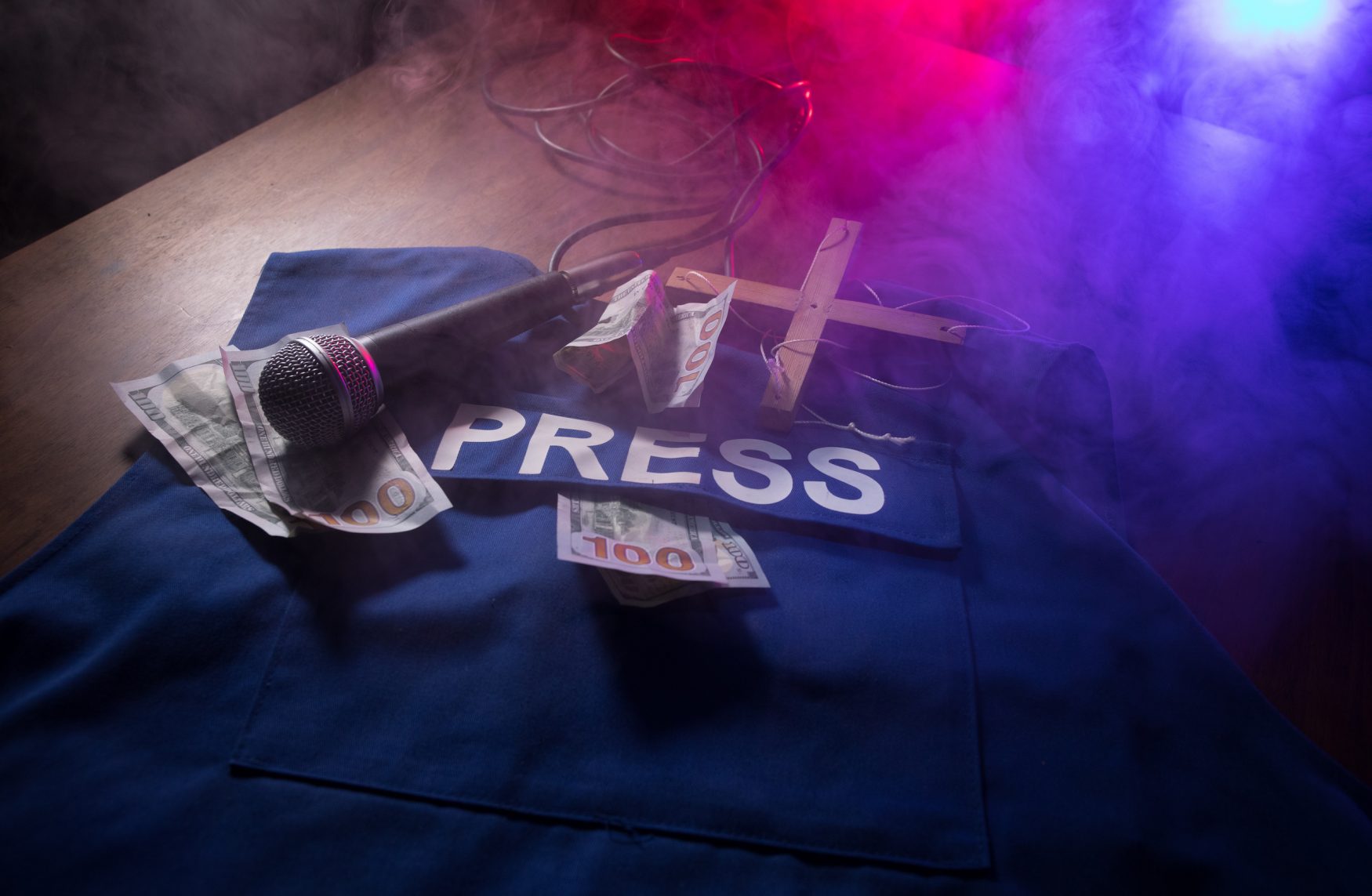
How Has the Bought U.S. Media Sold Out the Average Citizen?
The Bought U.S. Media Makes Publishing and Broadcast Decisions Based on the Interests of the Corporation or Advertisers, Rather Than the People.
The bought U.S. media is rife with conflicts between serving the interests of the local citizens and the interests of the corporate parent company.
The wide array of channels available on cable and satellite television give the impression of choice, but six companies own most of what you see.
It creates an environment where editors, producers or publishers must make choices between the interests of the conglomerate or its advertisers or the best interests of the public; often the wrong choice is made.
For example, reporting a particular news story may be in the best interest of the public, but damaging to a parent corporation, its affiliates or advertisers.
A free and independent media fills a crucial role in society, and is essential for the populace to be well informed, learn about important issues and follow the news of the day.
Our founding fathers understood the necessity of a free press to ensure a well informed populace, which Jefferson called the only antidote to tyranny.
Jefferson said, “The only security of all is in a free press. The force of public opinion cannot be resisted when permitted freely to be expressed. It is necessary to keep the waters pure”.
Under the consolidated media, there is less content, less diversity in opinion and contributes to the marginalization of some minority groups.
Who Owns the Media?
Although the vast number of available channels gives the impression of abundant choice, but six companies basically own the media in the United States.
The six companies that own more than 90 percent of all media holdings are Disney, Viacom, Time Warner, General Electric, Bertelsmann AG and News Corporation.
Since 1973, about 2/3 of independently owned newspapers in the country have folded or been taken over by the large conglomerates.
The process began many years before with JP Morgan, Rockefeller and Warberg.
How the Media Became Consolidated
Morgan, Rockefeller and Warberg worked together to identify and purchase the most influential media outlets of their day and subsequently formed The Council on Foreign Relations as part of an overall goal to create a system of world financial control.
The Council continues to be the most powerful private organization in the world that impacts U.S. foreign policy.
Members are the elite, the ruling class and have included presidents, former secretaries of state and media moguls.
Since its inception, the Council has been involved and promoted consolidation and the bought US media.
For many years, the Federal Communication Commission’s (FCC) rules about media ownership helped provide a check on monopolies in the media.
However, that has gradually changed to the point that in 2003, the FCC attempted to eliminate the vast majority of its rules.
The elimination of all media ownership regulations would lead to further consolidation.
The change was rejected by a federal appeals court the following year, but further deregulation may return in the future.
How Consolidation Affects News Coverage
The bought U.S. media is the commercially driven mass media.
Media messages contribute to the image of the culture, with an elite group controlling the messages.
In addition to messages of consumerism and want, the media cultivates and perpetuates stereotypes in regard to race, gender, sexual orientation as well as economics.
Local communities suffer without a local media. There are fewer local radio stations, television stations and newspapers in communities across the country.
The result is little, if any, local news coverage and information is solely limited to the mass media coverage, which is severely limited.
Often, the story will be killed to protect the conglomerate; in other cases, reporters have found their stories heavily edited to soften or remove the potentially damaging information.
In other cases, the media controls the advertising messages we hear every day.
Advertisements from liberal political groups, such as MoveOn.org or anti war messages from non profits have been refused.
Meanwhile, special interest groups are working to preserve the free press, including Stop Big Media and Free Press.

 My First Amazing Ayahuasca Experience
My First Amazing Ayahuasca Experience  Pine Needle Tea
Pine Needle Tea  The REAL Controllers of Humanity: The Papal Bloodlines
The REAL Controllers of Humanity: The Papal Bloodlines  Is it Global Warming or Cooling?
Is it Global Warming or Cooling?  Gun Rights and Obama Examined
Gun Rights and Obama Examined